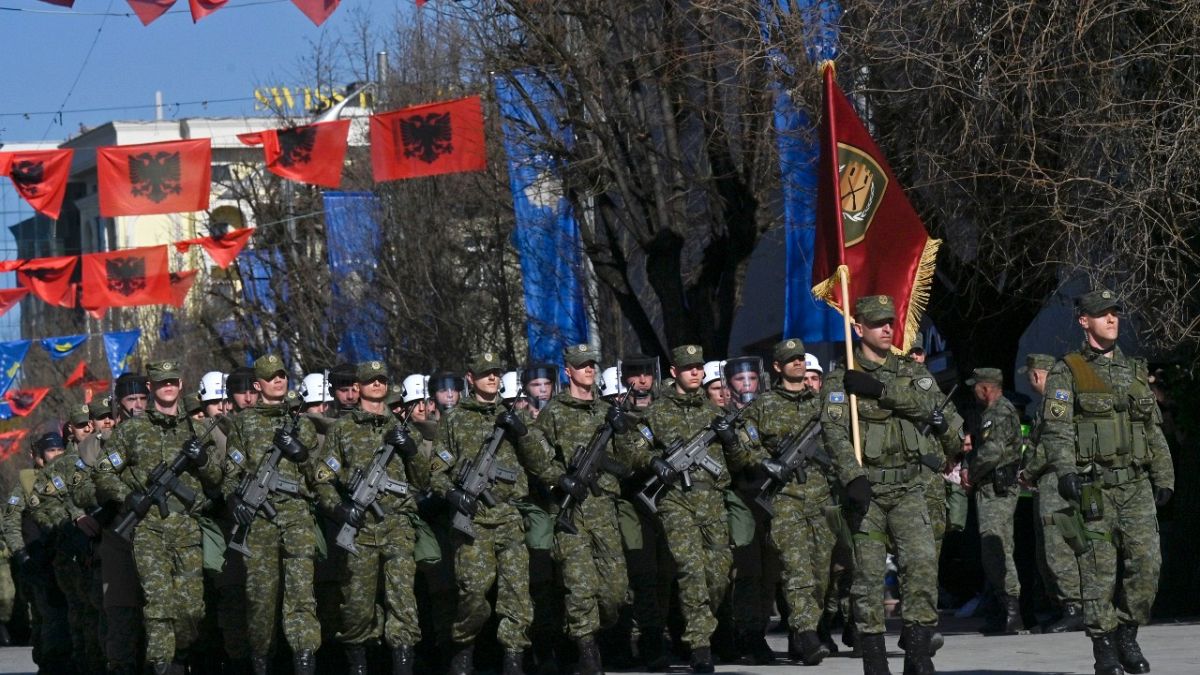EU foreign policy chief Josep Borrell has said that “more work is needed” and that the two countries' leaders would meet again next month.
Kosovo has accused Serbia of refusing to sign a European Union-sponsored plan that would normalise relations after months of rising political tensions.
On Monday, Serbian President Aleksandar Vucic and Kosovo Prime Minister Albin Kurti gave their tacit approval to the EU plan to end months of political crisis and help improve bilateral ties.
The agreement stipulates that both countries would recognise their respective documents and national symbols, and respect their independence, autonomy and territorial integrity, the right of self-determination, the protection of human rights, and non-discrimination.
They have agreed to deepen future cooperation in the fields of economy, science and technology, transport and connectivity, judicial and law enforcement, health, sport, environmental protection and missing persons.
Both countries want to join the EU, which has told them that they first need to sort out their differences. The agreement says they will not hamper each other’s steps to join the bloc.
Recently, tensions flared over seemingly trivial matters like vehicle licence plate formats, or the arrest of an ethnic Serb police officer.
"By the end of this year, we cannot have the agreement implemented in full. Elections must first be held in the north of Kosovo (after the resignation of the Serbian mayors). This is the main condition for the formation of the Association of Serbian Municipalities. Without them, this association is impossible," Fatmir Scheholi, Institute for Affirmation of Inter-Ethnic Relations, told Euronews Serbia.
There has been fresh concern among Western leaders that the tensions might spill over into a new Balkan conflict, breaking out just as Russia’s war in Ukraine enters its second year.
The EU has mediated negotiations between Serbia and Kosovo since 2011, but few of the 33 agreements that have been signed were put into action. The EU and the US have pressed for faster progress since Russia launched its full-scale invasion of Ukraine last year.
"Free interpretation is allowed and now, after the publication of the agreement, the main question is how the citizens of both Kosovo and Serbia will react to the proposed text," said Jovana Radosavljević of the Kosovo-based NGO the New Social Initiative.
Serbia and Kosovo have confirmed their obligation to implement all past dialogue agreements. Albania called the deal an "important achievement", even though it has not yet been signed.
EU foreign policy chief Josep Borrell has said that “more work is needed” and that the two countries' leaders would meet again next month.
In recent months, US and EU envoys have visited Pristina and Belgrade regularly to encourage them to accept the new proposals, and the two leaders met with senior EU representatives on the sidelines of a major security conference in the German city of Munich earlier this month.
“Our expectations are very high to this agreement and I think what’s new is not only the seriousness of both governments but the seriousness of our European partners to make this happen in the shadow of one of the biggest crises Europe has seen since World War 2,” senior US State Department official Gabriel Escobar said.
Tensions have simmered between Serbia and its former province since Kosovo unilaterally broke away in 2008. The declaration of independence was recognised by many Western countries but opposed by Serbia, with the backing of Russia and China.
